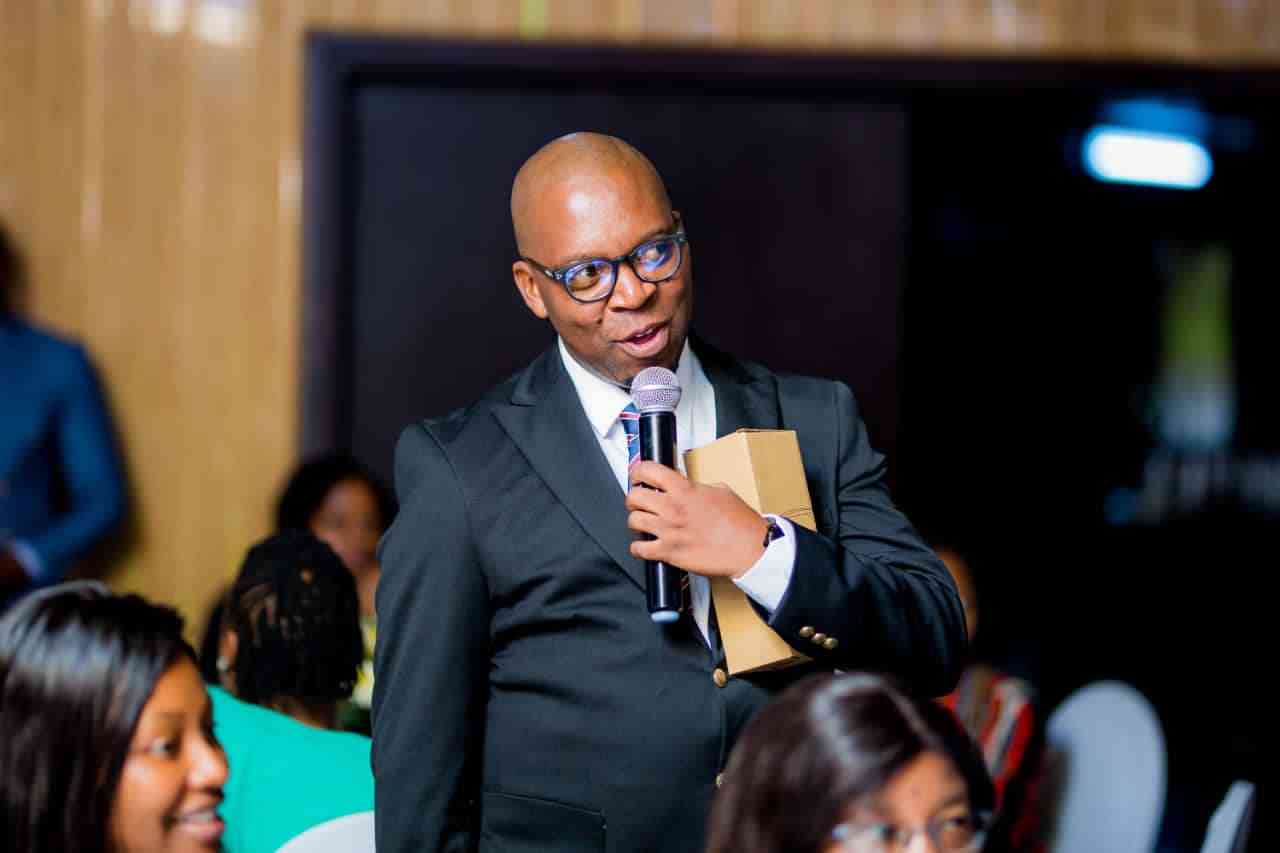
IN this article, I engage Tafadzwa Mukoyi, affectionately known as Coach Taf. He is a success coach, author (Exit Your Excuses), motivational speaker, and an entrepreneur. About team effectiveness, Coach Taf says, Go big, or go home!
JN: How important is team-building, coaching or training for companies?
Coach Taf: As an executive and performance coach, I have seen first-hand how strong team dynamics can lead to improved collaboration.
When team members trust and understand each other, they communicate better, share ideas freely and work together towards common goals.
This synergy can lead to innovative solutions and higher productivity.
Team-building activities can significantly boost morale. When employees feel valued and as part of a cohesive unit, their job satisfaction increases.
It’s important to foster a positive environment, where individuals feel encouraged to contribute their best.
The reality is that every team faces challenges.
- Simbiso Youth Coaching publishes prefects leadership handbook
- The DNA of high-performing teams
Keep Reading
Sometimes I create conflict simulations during training and coaching to assess and manage conflicts and turn them into opportunities for growth.
Training in conflict resolution equips teams with the skills to handle disagreements constructively, leading to a healthier workplace culture.
Effective team-building ensures that everyone is aligned with the company’s vision and objectives.
As a coach, I help teams understand their roles in the bigger picture, fostering a sense of ownership and accountability. My role as a coach is crucial in guiding teams through change and uncertainty.
JN: What are some of the team dysfunctions or disjunctions that warrant team-building?
Coach Taf: Team dysfunctions can significantly hinder a team’s performance and overall effectiveness. Let’s start with trust.
When team members don’t trust each other, it creates an environment of fear and defensiveness.
This can lead to poor communication and an unwillingness to share ideas or admit mistakes.
Earlier, I talked about conflict and that a team which avoids conflict often experiences unresolved issues, which can lead to resentment and disengagement.
The biggest dysfunction I have come across over the years is a lack of commitment and drive to achieve set goals and targets.
When team members are not fully committed to team goals, it can result in half-hearted efforts and a lack of accountability.
This often stems from unclear objectives or a lack of buy-in from the team. When I coach, my buzz word is accountability.
If team members don’t hold each other accountable, it can lead to a culture of mediocrity.
Without accountability, individual performance may suffer, and the team may fail to reach its goals.
In an age where people multitask and are engaged in multiple income streams, a dysfunction that is often overlooked is seen when team members prioritise their individual goals over the team’s collective results, which can lead to a lack of focus and poor performance.
This often occurs in environments where personal success is rewarded more than team success.
The no-brainer is communication. Ineffective communication can result in misunderstandings, frustration and a lack of clarity around roles and responsibilities.
This dysfunction can lead to conflicts and decreased productivity. Then there is the big one and that’s resistance to change.
Teams that resist change can become stagnant and miss opportunities for growth.
This resistance can stem from fear of the unknown or a lack of understanding of the benefits of change.
Let us not forget that a team with low morale may struggle with motivation and engagement.
Factors contributing to low morale can include lack of recognition, poor leadership or overwhelming workloads.
Finally, differences in values, beliefs or work styles can create friction within a team. Building a strong, inclusive culture is essential for fostering collaboration and mutual respect.
JN: To some companies, employee training seems to be a waste of time and financial resources. How would you convince the chief executive officer (CEO) to engage team-building experts?
Coach Taf: One of the 20th century’s leading advocates for individuals with disabilities Helen Kelleronce once said: “Alone, we can do so little; together we can do so much.”
This quote perfectly encapsulates the essence of teamwork and the importance of investing in team-building.
When we recognise the power of collaboration, we unlock the potential for extraordinary results.
If that is true, then investing in team-building is not just an expense. It’s an investment in the company’s future.
Studies show that organisations with strong team dynamics experience higher productivity, lower turnover rates and increased profitability.
By engaging team-building experts, you are ensuring a return on investment that can significantly outweigh initial costs.
One of the biggest roles of a CEO is to foster a positive work culture and environment where employees feel valued and motivated.
When employees are engaged, they are more likely to go above and beyond in their roles.
This positivity can lead to improved customer satisfaction and loyalty, ultimately benefiting the company’s bottom line. So there is a need to convince a CEO to align with goals that he superintends over.
The biggest headache for a CEO is that high turnover can be costly. Investing in team-building and training can increase employee satisfaction and retention.
When employees feel connected to their team and the organisation, they are less likely to seek opportunities elsewhere.
This stability can save the company significant recruitment and training costs. Team-building is not just for employees, it also develops leadership skills.
By working with team-building experts, a CEO can identify and nurture future leaders within the organisation, ensuring a strong leadership pipeline that drives the company forward.
I am unaware of a CEO who doesn’t want to create lasting impact and establish an undeniable legacy.
Engaging team-building experts can lead to lasting change within the organisation.
The skills and connections developed through these activities can continue to benefit the team long after the sessions are over, creating a culture of continuous improvement.
Finally, I must simply align my team-building, coaching and training to the CEO’s key performance indicator, so all I need to do is to partner the CEO.
JN: What are some of the emotional intelligence tips you would give to build a strong team?
Coach Taf: Emotional intelligence refers to the ability to recognise, understand, and manage our own emotions, as well as the emotions of others. This is crucial to maintain healthy relationships.
The first tip is to encourage team members to reflect on their emotions, strengths and weaknesses. Self-awareness helps individuals understand how their feelings impact their behaviour and interactions with others.
Then I would promote active listening within the team. This means fully concentrating on what others are saying, asking clarifying questions, and showing empathy.
It fosters a sense of respect and understanding. I have found the importance of cultivating empathy to be a tip necessary in any team toolkit. So, I would encourage team members to put themselves in each other’s shoes.
Empathy helps build connections and trust, making it easier to navigate conflicts and collaborate effectively.
A tip that is easier said than done is for team members to recognise and manage their emotions, especially in stressful situations.
Techniques such as deep breathing, mindfulness, or taking a moment to pause can help maintain composure and clarity.
Teams also fail at giving feedback, so I would train team members to give and receive feedback in a constructive manner.
Focus on behaviours rather than personal attributes and ensure that feedback is specific, actionable and delivered with kindness.
Finally, because I love it too, I will give them a tip to celebrate small wins.
Celebrating achievements fosters a sense of belonging and motivates team members to continue performing at their best.
JN: Culture intelligence is becoming important as companies eye global markets. What is cultural intelligence?
Coach Taf: Cultural intelligence (CQ) is the capability to relate to and work effectively across cultures.
It encompasses a set of skills and knowledge that enable individuals to understand, respect, and adapt to different cultural contexts.
CQ is increasingly important in today’s globalised world, where businesses operate in diverse environments and interact with people from various cultural backgrounds.
Here are some of the key components of CQ:
- Cognitive CQ: This involves knowledge about different cultures, including their values, norms, and practices. It includes understanding cultural frameworks and how they influence behaviour and decision-making.
- Physical CQ: This refers to the ability to adapt one’s behaviour and body language to fit different cultural contexts. It includes non-verbal communication skills and the ability to adjust one’s appearance and mannerisms to align with cultural expectations.
- Emotional/motivational CQ: This is the drive and confidence to adapt to new cultural situations. It involves being open-minded, curious, and willing to engage with people from different cultures, as well as managing one’s own emotions in unfamiliar settings.
JN: As a leader or manager, how do you lead effective teams? What are the tips to constantly keep your team(s) ahead of the pack as a leader?
Coach Taf: Leading effective teams requires a combination of strong leadership skills, strategic planning, and a focus on team dynamics. Here are some key tips for leaders and managers to keep their teams ahead of the pack:
- Define clear, measurable objectives for the team. Ensure that everyone understands their roles and responsibilities, as well as how their contribution aligns with the larger organisational goals.
- Create an environment where team members feel comfortable sharing ideas, feedback and concerns. Regular check-ins and open-door policies can help maintain transparency and trust.
- Promote teamwork by encouraging collaboration on projects. Utilise team-building activities to strengthen relationships and enhance cooperation among team members.
- Recognise the value of diverse perspectives and experiences.
- Create an inclusive culture where everyone feels valued and empowered to contribute, leading to more innovative solutions.
- Support continuous learning by providing opportunities for training, workshops and mentorship.
- Encourage team members to pursue their professional growth, which can enhance overall team performance.
- Finally, model the behaviour you want to see in your team. Demonstrate commitment, integrity, and a strong work ethic. Your actions set the tone for the team’s culture.
Jonah Nyoni is an author, speaker, and leadership trainer. He can be contacted on X @jonahnyoni. WhatsApp: +263 772 581 918









